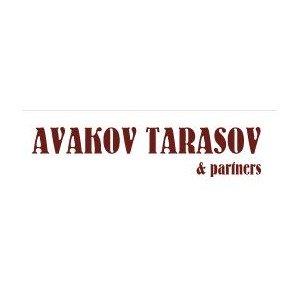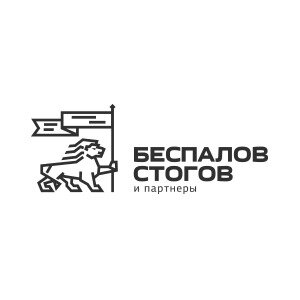Best Private Equity Lawyers in Russia
Share your needs with us, get contacted by law firms.
Free. Takes 2 min.
Or refine your search by selecting a city:
List of the best lawyers in Russia
About Private Equity Law in Russia
Private Equity in Russia refers to investments made into companies that are not publicly traded on a stock exchange. These investments often involve buying majority or minority stakes in private businesses or in state-owned assets undergoing privatization. Private Equity funds in Russia typically focus on promising sectors such as energy, technology, consumer goods, and manufacturing. The Private Equity landscape in Russia has seen significant development over the past decade with increased interest from both local and foreign investors, despite some market-specific challenges including regulatory requirements, geopolitical factors, and market volatility. The industry is governed by Russian corporate, investment, and securities laws, which set the procedures for structuring investments, protecting investor rights, and enabling successful exits.
Why You May Need a Lawyer
Engaging in Private Equity transactions in Russia can be complex and involves a range of legal risks. Some common reasons why you may need legal help include:
- Structuring investments to comply with Russian regulations
- Conducting due diligence on prospective target companies
- Negotiating and drafting investment agreements, shareholder agreements, and exit arrangements
- Advising on tax structuring and potential tax liabilities
- Ensuring compliance with currency control and anti-money laundering regulations
- Navigating merger control and antimonopoly approvals
- Resolving disputes between investors, founders, or management
- Guiding the exit process, whether through IPOs, sales to strategic buyers, or buybacks
Legal assistance can help mitigate risks, protect your interests, and increase the likelihood of a successful investment outcome.
Local Laws Overview
Several key aspects of Russian law are particularly relevant to Private Equity deals:
- Corporate Law - The Civil Code of Russia and the Federal Law on Joint Stock Companies and Limited Liability Companies regulate corporate governance, shareholder rights, and duties of management.
- Foreign Investment Regulations - Certain strategic sectors are subject to restrictions on foreign ownership or require prior state approval for transactions.
- Securities Regulation - The Central Bank of Russia oversees securities regulation, particularly for investments involving shares, bonds, or other securities.
- Merger Control - Transactions above certain thresholds must be cleared by the Federal Antimonopoly Service to prevent market concentration.
- Taxation - Russian tax laws affect the investment structure, profit repatriation, and transaction costs, including VAT, corporate income tax, and withholding taxes.
- Currency Control - Operations involving foreign investors or cross-border capital flows are subject to strict reporting and compliance procedures.
- Dispute Resolution - Russian courts and sometimes international arbitration forums handle disputes, depending on contractual provisions.
Understanding these legal frameworks is essential before making, managing, or exiting a Private Equity investment in Russia.
Frequently Asked Questions
How is a Private Equity investment usually structured in Russia?
Most Private Equity investments are structured through the acquisition of shares in Russian limited liability companies (OOOs) or joint stock companies (AOs). Sometimes, offshore holding structures are used, although recent regulations have limited their use for Russian operations.
Can foreign investors participate in Private Equity deals in Russia?
Yes, foreign investors can participate in Private Equity deals, but some sectors are restricted or require governmental approval, especially those deemed strategic for national security.
What due diligence is needed before investing?
Due diligence generally includes legal, financial, and tax checks on the target company. This is to identify liabilities, potential regulatory issues, and verify ownership of assets.
Are there exit restrictions for investors in Russia?
Exit options can be restricted by shareholders' agreements, Articles of Association, or statutory pre-emption rights. Certain sectors may also require state consent for share sales.
Is it common to include anti-dilution or tag along clauses?
Yes, clauses like anti-dilution, tag along, and drag along rights are commonly negotiated and included in shareholders' agreements to protect investor interests.
What is the typical process for closing a Private Equity deal?
The process usually includes negotiating main terms, conducting due diligence, seeking regulatory approvals, finalizing transaction documents, and completing payment and transfer of shares.
How are disputes from Private Equity transactions resolved?
Disputes are often resolved in Russian commercial courts but may also be referred to international arbitration if explicitly agreed in the contract.
What are the main regulatory bodies involved?
Key bodies include the Central Bank of Russia, the Federal Antimonopoly Service, and relevant tax authorities.
Are there currency controls affecting Private Equity transactions?
Yes, certain payments and capital movements involving foreign investors are regulated under Russian currency control laws and require specific reporting.
How can investors protect their rights in a Russian company?
Investors should sign well-drafted shareholders' agreements, ensure proper structuring of voting and board rights, and register their rights in accordance with Russian corporate law.
Additional Resources
The following organizations and resources can provide valuable information and support related to Private Equity in Russia:
- The Russian Direct Investment Fund (RDIF)
- The Russian Venture Capital Association (RVCA)
- The Ministry of Economic Development of Russia
- The Federal Antimonopoly Service
- Central Bank of Russia (for financial market regulations)
- Various international law firms with offices in Moscow or St Petersburg
- Local business chambers and investment promotion agencies
Next Steps
If you are considering a Private Equity transaction or need advice on an existing investment in Russia, you should:
- Identify your investment goals and any potential target companies or sectors.
- Contact a qualified local or international law firm with experience in Russian Private Equity transactions to discuss your needs.
- Prepare to share documentation and background information for an initial assessment.
- Conduct preliminary due diligence and request legal advice on potential risks and regulatory requirements relevant to your deal.
- Work with your legal advisor to structure the transaction, negotiate agreements, seek any necessary approvals, and ensure legal compliance throughout the process.
Timely legal support can be crucial to safeguarding your investment and navigating the unique challenges of the Russian Private Equity market.
Lawzana helps you find the best lawyers and law firms in Russia through a curated and pre-screened list of qualified legal professionals. Our platform offers rankings and detailed profiles of attorneys and law firms, allowing you to compare based on practice areas, including Private Equity, experience, and client feedback.
Each profile includes a description of the firm's areas of practice, client reviews, team members and partners, year of establishment, spoken languages, office locations, contact information, social media presence, and any published articles or resources. Most firms on our platform speak English and are experienced in both local and international legal matters.
Get a quote from top-rated law firms in Russia — quickly, securely, and without unnecessary hassle.
Disclaimer:
The information provided on this page is for general informational purposes only and does not constitute legal advice. While we strive to ensure the accuracy and relevance of the content, legal information may change over time, and interpretations of the law can vary. You should always consult with a qualified legal professional for advice specific to your situation.
We disclaim all liability for actions taken or not taken based on the content of this page. If you believe any information is incorrect or outdated, please contact us, and we will review and update it where appropriate.
Browse private equity law firms by city in Russia
Refine your search by selecting a city.
















